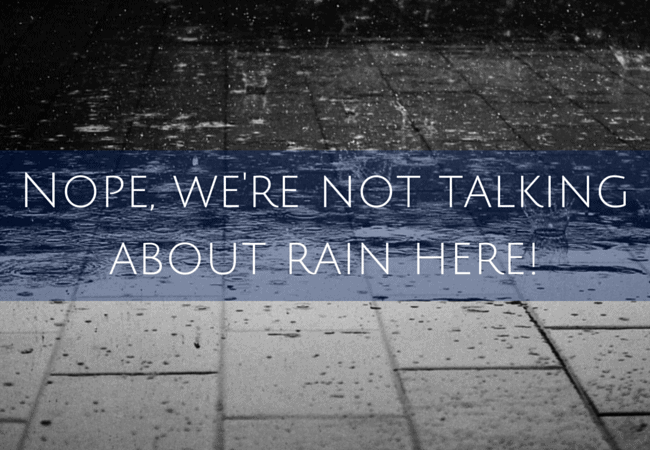Sometimes when you’re learning a language, you focus on all the wrong things. Like maybe focusing too much on perfect pronunciation. Or trying to expand your vocabulary before you have the basics down.
To get by in French, you need to have a decent vocabulary but you also need to be prepared to recognize some common questions and words you might hear when out and about. So instead of focusing on subjunctif conjugations and obscure words you’ll never use, perk up your ears and listen for these useful French phrases so you’re not lost. Learn from my mistakes!
GO!
French lesson: Listen for these words & phrases
The best way to learn a language is to just throw yourself into it and become immersed. It’s easier to do when you’re physically in France if you want to learn French, but by no means is it easy. (It’s even less easy when you decided to study Gaelic in college and not French.) Sometimes the things you learn in traditional language lessons just won’t cut it in the real world.
So today I’m giving you a list of useful French phrases and words that I wish I had learned before moving to France. Now I know what all of these mean and how to say them, but back during my first stint in France as a teaching assistant, I just stood there with a blank look on my face a tad perplexed.
Maybe you’ll never use any of these yourself, but you’ll have to know what they mean and how to respond to them.
Here’s my list of useful French phrases I wish I had known sooner:
Est-ce que vous avez trouvé votre bonheur ?
Did I find my what? My happiness? Uh, yes? I think? The last word would confuse me here. They’re asking if I’ve found my happiness? Huh? No, no, no. The first time I heard it, I was clueless and was thinking they were asking about my happiness since bonheur literally means happiness.
This question is commonly heard in stores (are shopping trolleys like the ones above granny chic or what?) when the shopkeeper wants to ask you if you’ve found what you were looking for. So it simply means have you found what you’re looking for. For some reason, they always say it in Sephora. I guess I did find happiness in Sephora — isn’t that cute?
Avec ceci ?
I never learned this one in high school French class and it’s one you’ll hear most commonly and quite often at the bakery. The first time I heard it, I thought the cashier was saying the name Stacy or something. So lost.
It just means “with what else?” The cashier wants to know if you’d like any other items, so you can say non merci, ça sera tout if you’ve ordered everything already or if you would like something else, say oui and then tell him/her what else you’d like.
Tabac/porc
For the longest time, I’d pronounce the “c” at the end of tabac (shop where you buy tobacco products, magazines, etc.) and porc (pork). Tom thought I was doing it to be funny and never corrected me, but the truth is that I thought you really did pronounce the “c.” You do NOT!
You say tabac kind of like tah-bah and no “c” sound in pork either, OK?
Tutoyer ?
Huh? What does that mean? There’s no real English equivalent. Tutoyer is a verb that means to use the familiar form of “you,” which is tu in French (the formal “you” is vous, and you can learn the difference here). It means you know the person and you’re on a first-name basis with each other.
I first heard this when a new acquaintance asked me, “Est-ce que je peux vous tutoyer ?” Well, DUH, yes. I’m American, and tu is always cool. And I felt much cooler after I’d learned this. There’s also vouvoyer, the verb that means to use vous with someone.
Frustrations of living in another language >>
Est-ce que ça t’a plu ?
OK, I feel dumb admitting this, but up until about six months ago, plu meant one thing to me — “rained.” As in, Est-ce qu’il a plu hier ?” (did it rain last night?) Why yes it did! Plu is the past tense of pleuvoir, the verb to rain.
So when the group fitness instructor at the gym asked me Est-ce ça t’a plu? I thought she was asking me if it rained. NOPE. I told her no, because it hadn’t rained, and she thought I said her class sucked. Oh man.
Plu is also the past tense of plaire, which means to please. So she was asking me if I liked the class last night. For me, it just seems easiest to ask if you liked something by saying Est-ce que tu as aimé ?
Asking if something pleased you sounds kind of funny to me in English, kind of old fashioned and not really a modern way to ask something, but French is different and it’s totally normal to ask if something pleased someone using plaire, or the past tense plu. Learn it. Listen for it. And then read this post about when the French language seems overly formal.
***
OK, that’s my embarrassing list of useful French phrases I wish I’d known sooner.
Do you have any French phrases you learned a little late? And I’m so curious to hear what’s tripped up my non-native English speakers! Tell me below!
New here? Welcome! I’ve put together a “Start Here” page that has some of my top posts. Click here!








Many , many, years ago, I was relating a sad story to some French girls who then said ‘Ah, bon’. My schoolgirl French said that ‘bon’ meant ‘good’. So I protested that my the events in my tale were not good. They fell about laughing as ‘Ah bon’ is said just to let you know they’ve listened, like ‘Really’. They weren’t being callous, just listening!
Yah, that can be tricky. Glad you got that straightened out though. You really do hear ah bon a lot.
Diane, ton billet m’a plu. Non, je ne parle pas de la météo 😉
It reminds me of one time in Peru. There was someone singing for us. I don’t speak Spanish so I asked
“Who is that “Nicolas Son” that I hear about in a lot of Spanish song?”.
The singer did not know what I was talking about so I referred to the song he just sang to us. After a while he said:
“Oh, you mean “mi corazon”? It means “my heart” in Spanish. It is used in a lot of love songs”…
I don’t think my wife ever laughed at me louder than that day.
Hahhaha, so funny that your French ear heard Nicholas Son not mi corazon. I’d probably have thought something similar. I know about 2 words in Spanish. Glad your wife got a laugh out of it too!
When I arrived in the USA, my first problem was with the sentence “How are you doing today?”… Huuuuumm. In school I learned : “How are you toady? – Fine and you?” or “What are you doing?- I’m eating” but not How are you doing. So in the first time, I didn’t know if the people want to know my mood or my action….
Hi Karine, yes, I can see how that would be confusing. I guess just listen for “how” versus “what” at the beginning. But I often miss the first word or two of a question in French, so it’s not always helpful. Sometimes little words make such a big difference! 😉 How are you doing with it now that you’ve been in the USA a little while?
Also, I hear the “fine and you” so much with French speakers. It’s weird that they teach it in school because “fine” doesn’t really come across as an overly positive response to the question. Maybe “I’m fine” would be better. But just “fine and you” is what I hear a lot and it doesn’t sound natural to me. For me, “I’m doing alright” or “I’m good” sounds much more natural (to my American ear).
Thanks a lot for this information about “Fine” !!
I would add ‘ç’a été?’ to the list. I remember when we first came to live here in restaurants the serveur/euse would often say ç’a été when clearing the plates. Took us a while to realise they were asking if everything was ok, that we liked the dish. I guess the literal translation would be ‘and that was? or how was that?’
Oh yes, Tom taught me “Ça a été” right away after being lost the first time I heard it a few years ago! Now I expect to be asked that and am prepared!
Are you sure “tabac” and “porc” are the only words you’ve spelled entirely even though it contains unspellable letters? I am certain you have had this kind of misadventure with other ones having this particularity. They are so many!
You mean pronounced entirely? I’m sure there are loads of words I’ve messed up. I didn’t say those were the only two — far from it! 😉 Sometimes I want to go run and hide: https://www.ouiinfrance.com/2016/07/27/french-language-makes-want-run-hide/ You might like that one!
I like, “On se tutoie?” (Shall we use tu together?)
It seems more of an informal way to propose being informal.
You mention the tutoyer being a very French think, well i have found an American version! At least once a month i have an American visitor address me in the past tense, so i would say ‘ have you come to see the Gallery?’ And they would say ‘Yes i did’ ! Confused the hell out of me, no idea what they were talking about, must admit i did think they werent very bright, not understanding tenses in their own language….. Then it was happening so much I googled it. Turns out in some parts of the States its polite to address stranges in the past tense…. just as weird as addressing stranges as a plural ( vous) but more confussing!
Interesting point. I don’t think it has to do with parts of the States or politeness, though. When you hear, did you come for the show?, the physical action of coming is over. You are in the gallery, you got there. In French, it is as if you were still moving. Which in a way is true, because you are standing at the entrance, and will proceed to the show itself. So , vous venez pour l’expo? makes sense. One language focuses on your making your way to the gallery, the other focuses on your standing there. Those are the little things that make languages difficult to master.
Caro, “have you come to see the show” is not a past tense in English. It’s actually the present perfect tense. The English equivalent of “j’ai vu” for instance is NOT “I have seen,” but rather “I saw.” “I have seen” means that the action started in the past but is continuing in the present and will or may go on into the future. If I say, for instance, “I have been to France many times, ” it means that I may very well go back to France again in the future. I will only be able to say “I went to France many times” on the day when I decide to never go back again (and that will be a very sad day indeed).